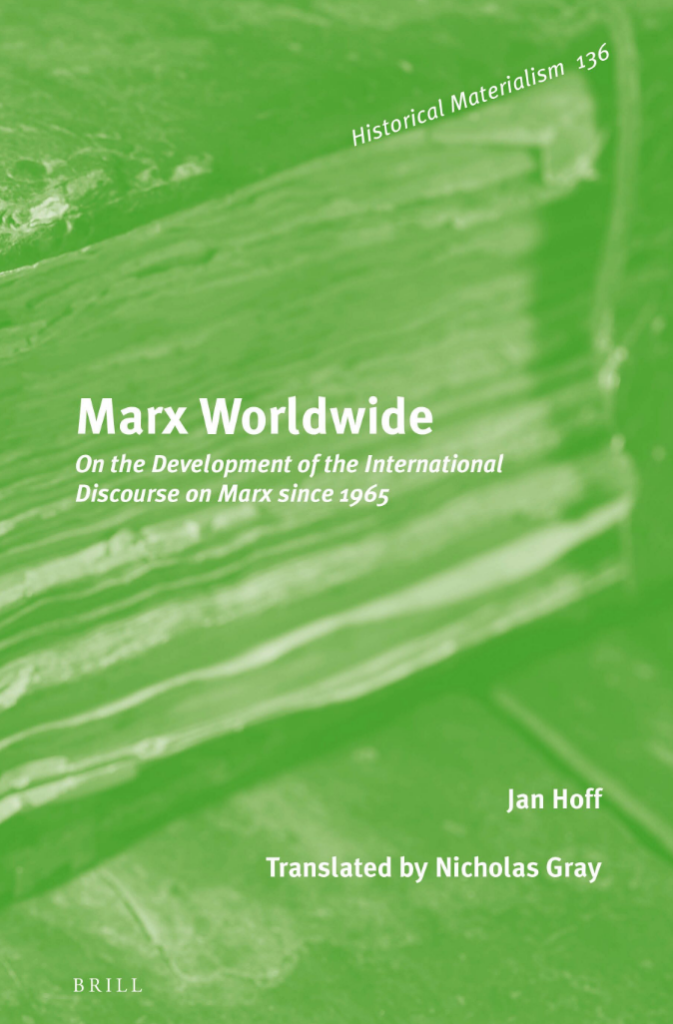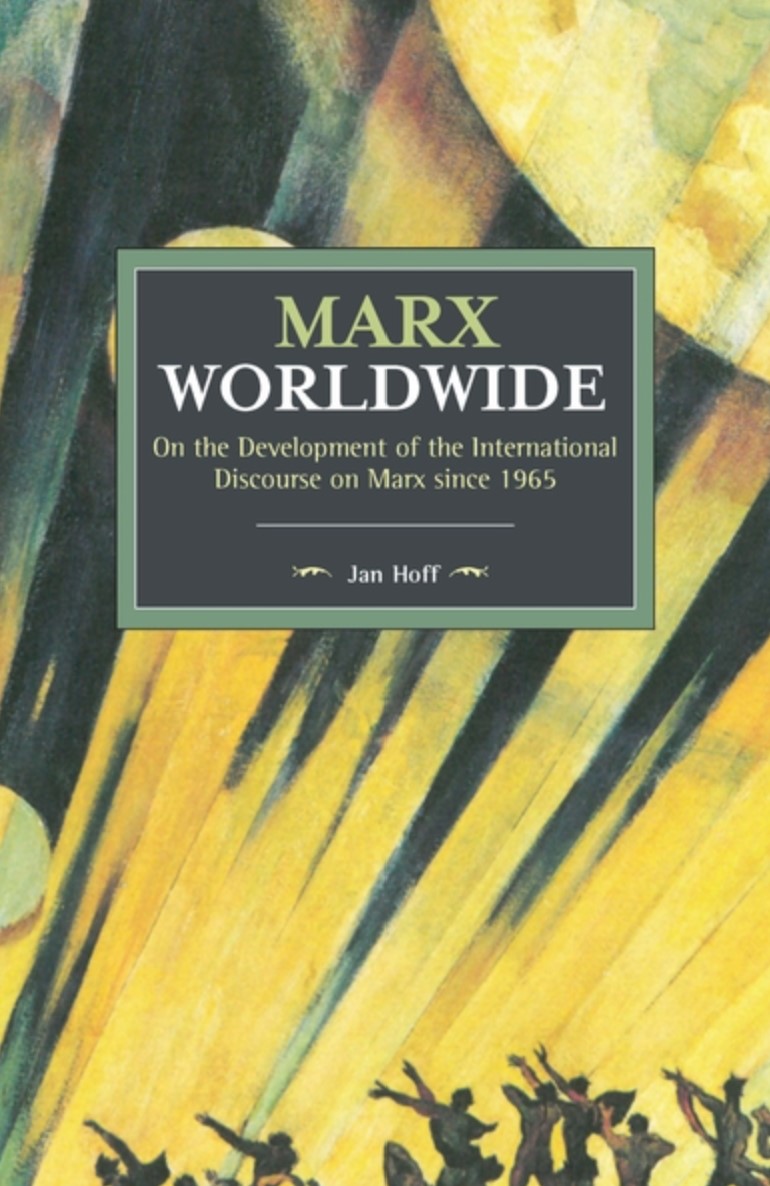Jan Hoff. Translated by Nicholas Gray
In his study Jan Hoff charts the unprecedented global boost that has been experienced by critical Marxism since the mid-1960s. In particular Hoff shows the development of interpretations of Marx’s method; of critical social theory oriented towards Marx’s critique of political economy; and of significant disputes concerning the different versions and iterations of the critical project that ultimately culminated in Capital. His book investigates the ‘globalisation’ of Marx debates, the complex network of international theoretical approaches that have been devised between the poles of science and politics, the transfer of theory and the historical development of schools of thought beyond national and linguistic borders.
Marx Worldwide provides an overview of Marx reception in various regions of the world, in which the extra-European process of theory formation receives particular attention; and it shows how, despite the supersession of Marxism in the sense of an all-encompassing worldview, the Marxian aim of providing an explication of the internal connection of economic categories and relations, and thereby of accomplishing the ‘de-mystification’ of the ‘deranged world’ of the economy, is as relevant and as theoretically important as it has ever been.
First published in German by Akademie Verlag as Marx Global. Zur Entwicklung des internationalen Marx-Diskurses seit 1965, Berlin, 2009.
Biographical note
Readership
Reviews
Published in: Zeitschrift für Politikwissenschaft, 11 November 2009
Table of Contents
Preface
Introduction
1. The Development of Varying Marx-Oriented Conceptual Approaches between the Poles of Politics and Theory from the 1960s to the Present
1.1 Dogmatic Marxism before the Political and Theoretical Upheaval
1.1.1 Soviet Marxism-Leninism before De-Stalinisation
1.1.2 A Brief Insight into the Current State of Research into Chinese Marxism before 1978
1.2 Marxism’s Resurgence between the Inception and Highpoint of Political Movements of Emancipation (circa 1960/65–77)
1.2.1 Western Europe and the Anglo-Saxon World
1.2.2 Latin America and Asia
1.2.3 ‘Heretical Marxism’ in Eastern Europe
1.3 From the Proclamation of the ‘Crisis of Marxism’ to the Decline of Marxism as a Mass Ideology (circa 1974–90)
1.3.1 Europe and North America
1.3.2 Latin America, Africa and Asia
1.4 The Global Situation after the End of Marxism as a Mass Ideology (circa 1990–2008)
2. The Further Development of the Marx debate since the 1960s: A Survey
2.1 West Germany
2.2 Japan
2.2.1 The Situation before 1945
2.2.2 The Evolution of the Japanese Debate from the Postwar Period to the Present
2.3 Other Asian Countries
2.3.1 South Asia
2.3.2 East Asia
2.4 The Former Socialist Countries in Europe
2.4.1 The Soviet Union
2.4.2 The GDR and Other Former Socialist Countries in Europe
2.5 Italy, France and Other Western European Countries
2.5.1 Italy
2.5.2 France
2.5.3 Other Western European Countries
2.6 Latin America and Spain
2.6.1 Latin America
2.6.2 Spain
2.7 The Anglo-Saxon World
3. In-Depth Analyses: Central Discourses within the German and International Discussions of Marx from the 1980s to the Present
3.1 The Understanding of the Object and Value-Theory
3.1.1 On the Understanding of the Object in the Critique of Political Economy
3.1.2 A Survey of the International Debate on Marx’s Theory of Value, with a Particular Focus on the Analysis of the Value-Form
3.1.3 Summary
3.2 The Problematic of Enquiry and Exposition in the Critique of Political Economy
3.2.1 A ‘Mont Blanc’ of Research Material
3.2.2 The Ascent from the Abstract to the Concrete and the ‘Problem of the Beginning’ in Marx’s Exposition
3.2.3 The Relation of Marx’s Critique of Political Economy to Hegel’s Philosophy as Reflected in the International Debate
3.2.4 Summary
3.3 The Six-Volume Plan and the Concept of ‘Capital in General’
3.3.1 The Structure of the Critique of Political Economy in Six Volumes
3.3.2 The Problematic of ‘Capital in General’
3.3.3 Summary
3.4 Crisis Theory in and after Marx
3.4.1 Approaches to the Interpretation of Marx’s Crisis Theory
3.4.2 An Insight into the Marx-Oriented Discussion of Crisis in South Korea following the Asian Financial Crisis of 1997
3.4.3 Summary
Conclusion
Postface
Bibliography
Index


